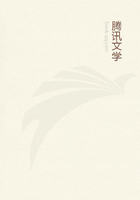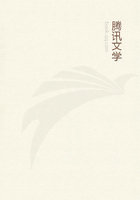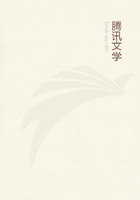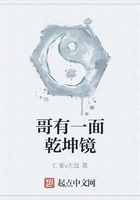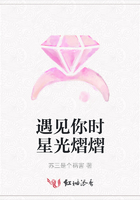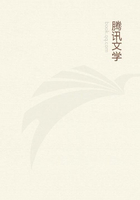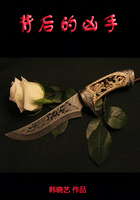When the island was large, it was distributed among several districts, and the boundaries for each were clearly defined. All encroachment on the rights of another was severely punished. And they secured the preservation of the fowl by penalties as stern as those by which the Norman tyrants of England protected their own game. No one was allowed to set foot on the island during the season for breeding, under pain of death; and to kill the birds at any time was punished in the like manner.24With this advancement in agricultural science, the Peruvians might be supposed to have had some knowledge of the plough, in such general use among the primitive nations of the eastern continent. But they had neither the iron ploughshare of the Old World, nor had they animals for .draught, which, indeed, were nowhere found in the New. The instrument which they used was a strong, sharp-pointed stake, traversed by a horizontal piece, ten or twelve inches from the point, on which the ploughman might set his foot and force it into the ground. Six or eight strong men were attached by ropes to the stake, and dragged it forcibly along, --pulling together, and keeping time as they moved by chanting their national songs, in which they were accompanied by the women who followed in their-train, to break up the sods with their rakes. The mellow soil offered slight resistance; and the laborer., by long practice, acquired a dexterity which enabled him to turn up the ground to the requisite depth with astonishing facility. This substitute for the plough was but a clumsy contrivance; yet it is curious as the only specimen of the kind among the American aborigines, and was perhaps not much inferior to the wooden instrument introduced in its stead by the European conquerors .25It was frequently the policy of the Incas, after providing a deserted tract with the means for irrigation, and thus fitting it for the labors of the husbandman, to transplant there a colony of mitimaes, who brought it under cultivation by raising the crops best suited to the soil. While the peculiar character and capacity of the lands were thus consulted, a means of exchange of the different products was afforded to the neighboring provinces, which, from the formation of the country, varied much more than usual within the same limits. To facilitate these agricultural exchanges, fairs were instituted, which took place three times a month in some of the most populous places, where, as money was unknown, a rude kind of commerce was kept up by the barter of their respective products. These fairs afforded so many holidays for the relaxation of the industrious laborer.26Such were the expedients adopted by the Incas for the improvement of their territory; and, although imperfect, they must be allowed to show an acquaintance with the principles of agricultural science, that gives them some claim to the rank of a civilized people. Under their patient and discriminating culture, every inch of good soil was tasked to its greatest power of production; while the most-unpromising spots were compelled to contribute something to the subsistence of the people. Everywhere the land teemed with evidence of agricultural wealth, from the smiling valleys along the coast to the terraced steeps of the sierra, which, rising into pyramids of verdure, glowed with all the splendors of tropical vegetation.
The formation of the country was particularly favorable, as already remarked, to an infinite variety of products, not so much from its extent as from its various elevations, which, more remarkable, even, than those in Mexico, comprehend every degree of latitude from the equator to the polar regions. Yet, though the temperature changes in this region with the degree of elevation, it remains nearly the same in the same spots throughout the year; and the inhabitant feels none of those grateful vicissitudes of season which belong to the temperate latitudes of the globe. Thus, while the summer lies in full power on the burning regions of the palm and the cocoa-tree that fringe the borders of the ocean, the broad surface of the table-land blooms with the freshness of perpetual spring, and the higher summits of the Cordilleras are white with everlasting winter.
The Peruvians turned this fixed variety of climate, if I may so say, to the best account by cultivating the productions appropriate to each; and they particularly directed their attention to those which afforded the most nutriment to man. Thus, in the lower level were to be found the cassavatree and the banana, that bountiful plant, which seems to have relieved man from the primeval curse--if it were not rather a blessing--of toiling for his sustenance.27 As the banana faded from the landscape, a good substitute was found in the maize, the great agricultural staple of both the northern and southern divisions of the American continent; and which, after its exportation to the Old World, spread so rapidly there, as to suggest the idea of its being indigenous to it.28 The Peruvians were well acquainted with the different modes of preparing this useful vegetable, though it seems they did not use it for bread, except at festivals; and they extracted a sort of honey from the stalk, and made an intoxicating liquor from the fermented grain, to which, like the Aztecs, they were immoderately addicted.29The temperate climate of the table-land furnished them with the maguey, agave Americana, many of the extraordinary qualities of which they comprehended, though not its most important one of affording a material for paper. Tobacco, too, was among the products of this elevated region.
Yet the Peruvians differed from every other Indian nation to whom it was known, by using it only for medicinal purposes, in the form of snuff.30They may have found a substitute for its narcotic qualities in the coco (Erythroxylum Peruvianurn), or cuca, as called by the natives. This is a shrub which grows to the height of a man. The leaves when gathered are dried in the sun, and, being mixed with a little lime, form a preparation for chewing, much like the betel-leaf of the East.31 With a small supply of this cuca in his pouch, and a handful of roasted maize, the Peruvian Indian of our time performs his wearisome journeys, day ,after day, without fatigue, or, at least, without complaint. Even food the most invigorating is less grateful to him than his loved narcotic. Under the Incas, it is said to have been exclusively reserved for the noble orders. If so, the people gained one luxury by the Conquest; and, after that period, it was so extensively used by them, that this article constituted a most important item of the colonial revenue of Spain.32 Yet, with the soothing charms of an opiate, this weed so much vaunted by the natives, when used to excess, is said to be attended with all the mischievous effects of habitual intoxication.33Higher up on the slopes of the Cordilleras, beyond the limits of the maize and of the quinoa,--a grain bearing some resemblance to rice, and largely cultivated by the Indians,--was to be found the potato, the introduction of which into Europe has made an era in the history of agriculture.
Whether indigenous to Peru, or imported from the neighboring country of Chili, it formed the great staple of the more elevated plains, under the Incas, and its culture was continued to a height in the equatorial regions which reached many thousand feet above the limits of perpetual snow in the temperate latitudes of Europe.34 Wild specimens of the vegetable might be seen still higher, springing up spontaneously amidst the stunted shrubs that clothed the lofty sides of the Cordilleras till these gradually subsided into the mosses and the short yellow grass: pajonal, which, like a golden carpet, was unrolled around the base of the mighty cones, that rose far into the regions of eternal silence, covered with the snows of centuries.35

